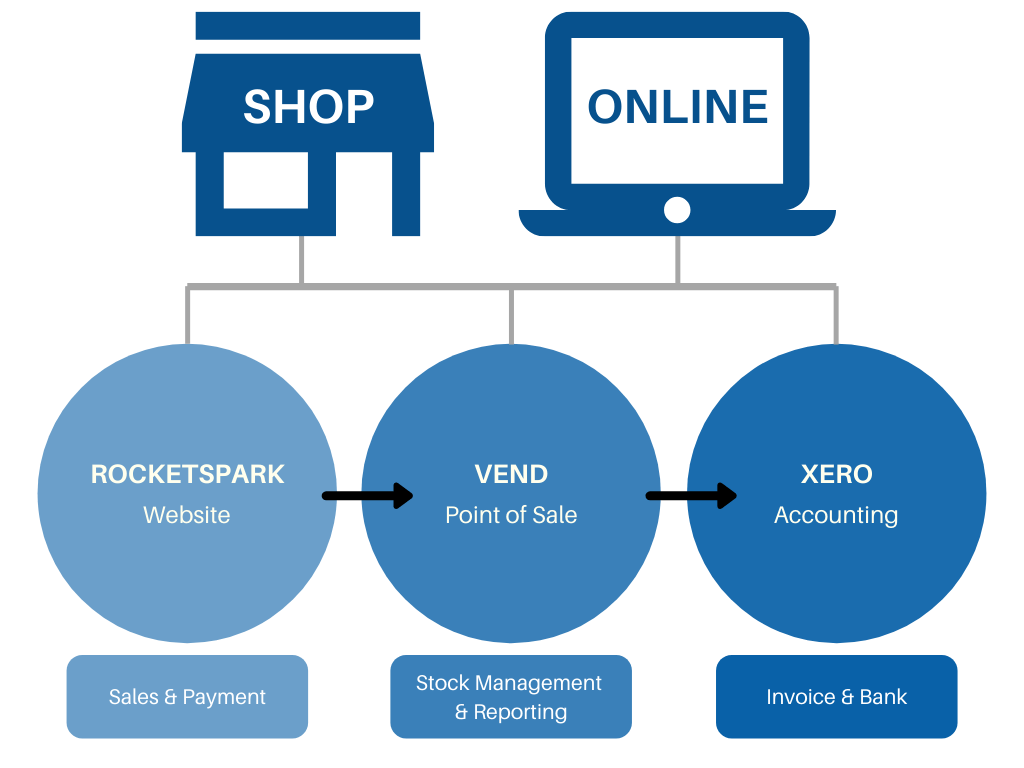Seamless Integration: E-commerce and Cloud Technology

In the dynamic landscape of e-commerce, achieving seamless integration has become a strategic imperative, and cloud technology stands as the linchpin in making this vision a reality. This article explores the symbiotic relationship between e-commerce and cloud technology, unveiling the transformative power of seamless integration and its profound impact on the efficiency, scalability, and innovation potential of online businesses.

1. Embracing a Unified Ecosystem: Cloud technology acts as the catalyst for creating a unified and interconnected ecosystem within the realm of e-commerce. By seamlessly integrating various components—ranging from inventory management and order processing to customer relationship management (CRM) and analytics—online businesses can operate as cohesive entities, breaking down silos for enhanced efficiency.
2. Streamlined Customer Experiences: Seamless integration in e-commerce and the cloud ensures that customers experience a harmonious journey across various touchpoints. From browsing products to making purchases and seeking customer support, the integration of cloud technology allows businesses to offer a streamlined and cohesive experience, fostering customer satisfaction and loyalty.
3. Dynamic Scalability for Demand Peaks: One of the key advantages of seamless integration with the cloud is the dynamic scalability it provides. During peak demand periods, such as seasonal sales or promotional events, e-commerce platforms can effortlessly scale their resources up to handle increased traffic and transactions. This scalability ensures optimal performance without disruptions.
4. Real-time Inventory Management: Cloud technology enables real-time inventory management, a critical component in the e-commerce landscape. Seamless integration ensures that inventory levels are continuously updated, preventing overselling or stockouts. This not only enhances operational efficiency but also contributes to improved customer trust through accurate product availability information.
5. Agile Product Updates and Rollouts: E-commerce platforms can stay agile and competitive by leveraging seamless integration with cloud technology for product updates and rollouts. New features, enhancements, and product launches can be deployed rapidly, allowing businesses to respond swiftly to market trends and customer demands, staying ahead in the fast-paced digital marketplace.
6. Enhanced Data Security Measures: Seamless integration with the cloud also brings heightened data security measures to e-commerce platforms. By centralizing data storage and implementing advanced encryption protocols, businesses can ensure the security and privacy of customer information. This instills confidence in online shoppers and protects the brand’s reputation.
7. Unified Analytics for Informed Decision-Making: The integration of cloud technology facilitates unified analytics, providing businesses with comprehensive insights into customer behavior, market trends, and performance metrics. This wealth of data supports informed decision-making, empowering e-commerce platforms to tailor strategies for optimal results and sustained growth.
8. Collaboration Across Departments: Seamless integration fosters collaboration across different departments within an e-commerce business. Whether it’s marketing, sales, or customer service, cloud-based tools enable teams to work cohesively. This collaboration enhances communication, reduces bottlenecks, and ensures that the entire organization operates in sync.
9. Cross-Channel Consistency: In a multi-channel e-commerce landscape, maintaining consistency across various channels is crucial. Seamless integration with the cloud ensures that product information, pricing, and promotional strategies are uniform across all channels. This consistency contributes to a cohesive brand image and a seamless customer experience.
10. Adaptive Technology Stack: The integration of e-commerce and cloud technology allows businesses to adopt an adaptive and future-ready technology stack. As technology evolves, e-commerce platforms can seamlessly incorporate emerging technologies, such as artificial intelligence, machine learning, and augmented reality, ensuring they remain at the forefront of innovation.
In conclusion, the seamless integration of e-commerce and cloud technology is a transformative force that reshapes the way online businesses operate. By breaking down barriers, enhancing collaboration, and providing a foundation for scalability and innovation, this integration paves the way for a new era of efficiency and customer-centricity in the digital marketplace. As e-commerce continues to evolve, the synergy between seamless integration and cloud technology will be a defining factor for success.



